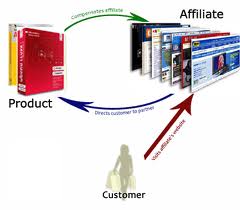Maximizing Profits: The Importance of Affiliate Tracking in Digital Marketing
In today’s highly competitive digital landscape, businesses are continually seeking methods to maximize their profits and gain a competitive edge. One crucial aspect of digital marketing that often goes overlooked is affiliate tracking. Affiliate tracking refers to the process of monitoring and measuring the performance of affiliates who promote a company’s products or services. It plays a pivotal role in ensuring that businesses can attribute their sales or leads to the appropriate affiliate partners, enabling them to optimize their marketing strategies and boost profitability.
Affiliate marketing has become increasingly popular among businesses looking to expand their reach and increase sales. By partnering with affiliates, companies can tap into new customer markets, benefit from the affiliates’ expertise and online presence, and gain exposure to a wider audience. However, without an effective tracking system in place, businesses risk losing potential profits and are unable to accurately assess the performance of their affiliate campaigns.
One of the primary benefits of affiliate tracking is the ability to accurately attribute sales or leads to specific affiliates. This information is crucial in determining which affiliates are driving the highest conversions and generating the most revenue. By identifying the top-performing affiliates, businesses can allocate resources more efficiently, focusing on partnerships that yield the best returns on investment. This also allows for the identification of affiliates who may not be delivering the desired results, allowing businesses to make informed decisions about continuing or discontinuing the partnership.
In addition to attributing sales, affiliate tracking provides valuable insights into customer behavior and preferences. By analyzing the data generated through tracking, businesses can gain a better understanding of their target audience, including their purchasing habits, interests, and demographics. Armed with this information, companies can tailor their marketing strategies to better resonate with their customer base, leading to increased engagement and higher conversion rates. For example, they can use data to personalize marketing messages, target specific customer segments, or launch new products that align with customer preferences.
Another significant advantage of affiliate tracking is the ability to measure and optimize the return on investment (ROI) of affiliate marketing campaigns. By tracking important metrics such as click-through rates, conversion rates, and average order value, businesses can assess the effectiveness of their affiliate campaigns and identify areas for improvement. For instance, if a specific campaign is not delivering the expected results, businesses can identify the underlying issues and make necessary adjustments to maximize its performance. This iterative process of testing, analyzing, and optimizing can lead to significant improvements in revenue generation and overall profitability.
Implementing an effective affiliate tracking system is not an arduous task. Numerous tracking software platforms are available, offering businesses easy integration with their existing digital marketing infrastructure. These platforms provide businesses with the tools necessary to track affiliate performance, generate in-depth reports, and gain actionable insights. Moreover, with the advent of advanced technologies such as artificial intelligence and machine learning, tracking systems can now automate much of the tracking process, allowing businesses to focus on strategy and optimization rather than manual tracking.
In conclusion, affiliate tracking plays a vital role in maximizing profits in digital marketing. It allows businesses to accurately attribute sales, gain valuable customer insights, and optimize campaign performance. By implementing a robust tracking system, businesses can make informed decisions, identify top-performing affiliates, and align their marketing strategies with customer preferences. Ultimately, incorporating affiliate tracking into digital marketing efforts can lead to increased profitability, boosted ROI, and a stronger competitive advantage in the dynamic digital landscape.









